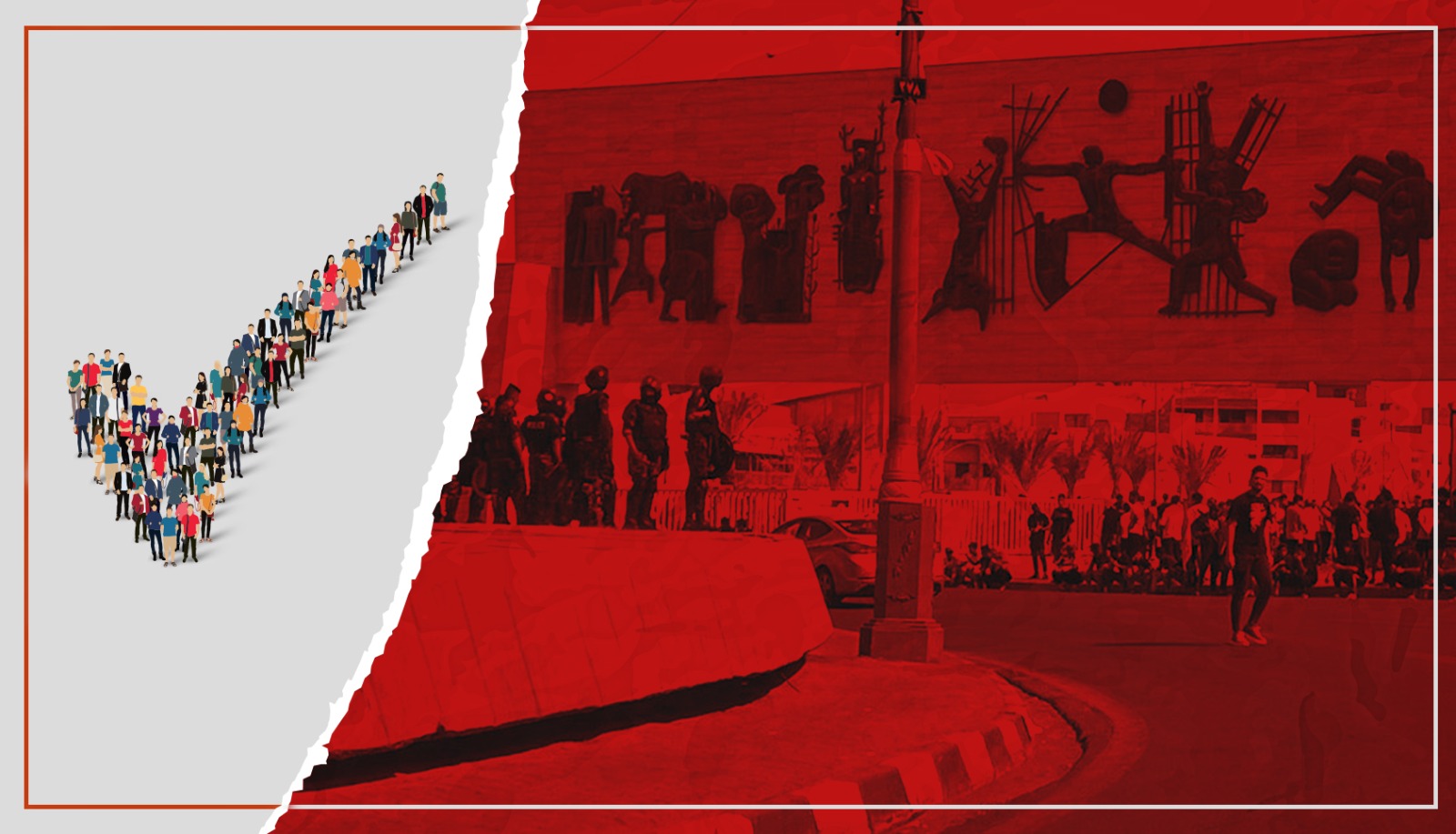The upcoming December 18, 2023, provincial elections pose a crucial choice for the new Iraqi civilian forces aligning with the October 2019 demonstrations. It's a dilemma between potential further decline or the chance to secure a popular base and influence within local councils. Success in these elections could pave the way for increased support in the 2025 parliamentary elections, while failure might have the opposite effect.
The upcoming elections, featuring approximately 6,000 candidates, present a pivotal moment for emerging civilian forces. These forces, unable to influence the political process during the "revolutionary" events in October 2019, now find a crucial opportunity to reshape Iraqi politics. Having participated in the fifth session of the House of Representatives, they now confront the challenge of engaging in local councils, which disrupted four years ago by popular will and later dissolved by parliamentary decision amid public discontent and corruption allegations.
In the initial stages of preparing for this process, civilian forces successfully established the "Qiyam al-Madani" coalition, serving as an umbrella for "reformist and democratic" factions involving 10 parties. Among them, the Iraqi Communist Party stands out. Co-chaired by Sajad Salm and Dr. Ali al-Rafi'i, they overcame hurdle 1.7 in the revised Sainte Legue electoral system, a modification enforced by the Shiite coordination framework majority to safeguard against the electoral success of smaller forces.
Simultaneously, Sadr's withdrawal from the election and his popular movement presents an opening for civilian forces aiming to contend with religious and ethnic factions, given their historical alliances. Yet, it's crucial to note that Sadr's persistent boycott stance and his followers' commitment to abstain from voting pose challenges. While there's potential for civilian forces to capitalize on Sadr's support base, lingering tensions between the two sides may hinder seamless cooperation.
Small, fragmented forces face the dilemma of constituents who are hesitant to participate in elections due to two main factors. Firstly, skepticism stemming from doubts about the fairness of elections, and secondly, the discouraging experience with new civilian forces in the current session marked by division, dictatorship, and inefficiency. The boycott campaign during the 2021 general elections inflicted considerable harm on civilian forces. Some of their key support bases were swayed by a narrative emphasizing the importance of preserving "Tishreen" as a value and principle rather than a mere parliamentary number. Critics argued that entering the electoral arena was futile due to unequal opportunities, and participating would only enhance the process for rivals rather than serving the protesters.
Civilian forces, fielding 400 candidates across 12 provinces, contend with 50 coalitions and 296 parties, with their primary rivals being Shiite forces aligned with the popular base of certain governors in central and southern Iraqi cities. Despite divisions among civilian forces and their seemingly more visible yet temporary coalition, Shiite forces in provinces, excluding Kirkuk and Nineveh, are fragmented into four main coalitions and poles led by Maliki, Amiri-Khazali, Hakim-Abadi, Humam Hamoudi. Their unity is restricted to conflict zones and multi-ethnic provinces.
The primary challenge for civilian forces stems from the Shiite coordination framework's dominance and the uneven power balance due to their control over state institutions. Compounding this issue is the threat of low voter turnout, with signs indicating that Sadrists, in addition to their own boycott, seek to discourage active participation. There's a prevailing sense of hopelessness and disillusionment among the masses towards the electoral process, exemplified by the 2021 elections' low turnout, where over 7 million people failed to obtain biometric cards. Among the eligible 23 million voters, only 16 million participated, posing a greater setback for civilian forces than political and sectarian entities. The meager turnout primarily involves party-affiliated individuals and those benefiting directly from them, or those motivated by religious and ethnic considerations or enticed by donations and material gains, a mechanism utilized by major powers to mobilize voters.
Beyond the usual political landscape, civilian forces contend with the incumbent governors' established parties, with Asaad al-Eidani, the governor of Basra, being a prominent figure. Additionally, the Al-Asas coalition, led by First Deputy Speaker Mohsen Mandalawi, operates in the same realm as civilian forces. Due to the coalition's strong support and Mandalawi's influential position, they pose challenges and exert pressure on civilian forces.
Despite several indications suggesting limited prospects for civilian forces and the heirs of Tishreen to secure a substantial victory in the upcoming election, the potential for unexpected developments still exists. Pessimism arises not only from internal issues within these forces but also from major powers' determination to maintain control over the political process, favoring dominant Shiite forces and leveraging state resources. The strategic use of tribal discourse in rural and secluded areas further amplifies its impact on the dynamics of the Iraqi elections.



